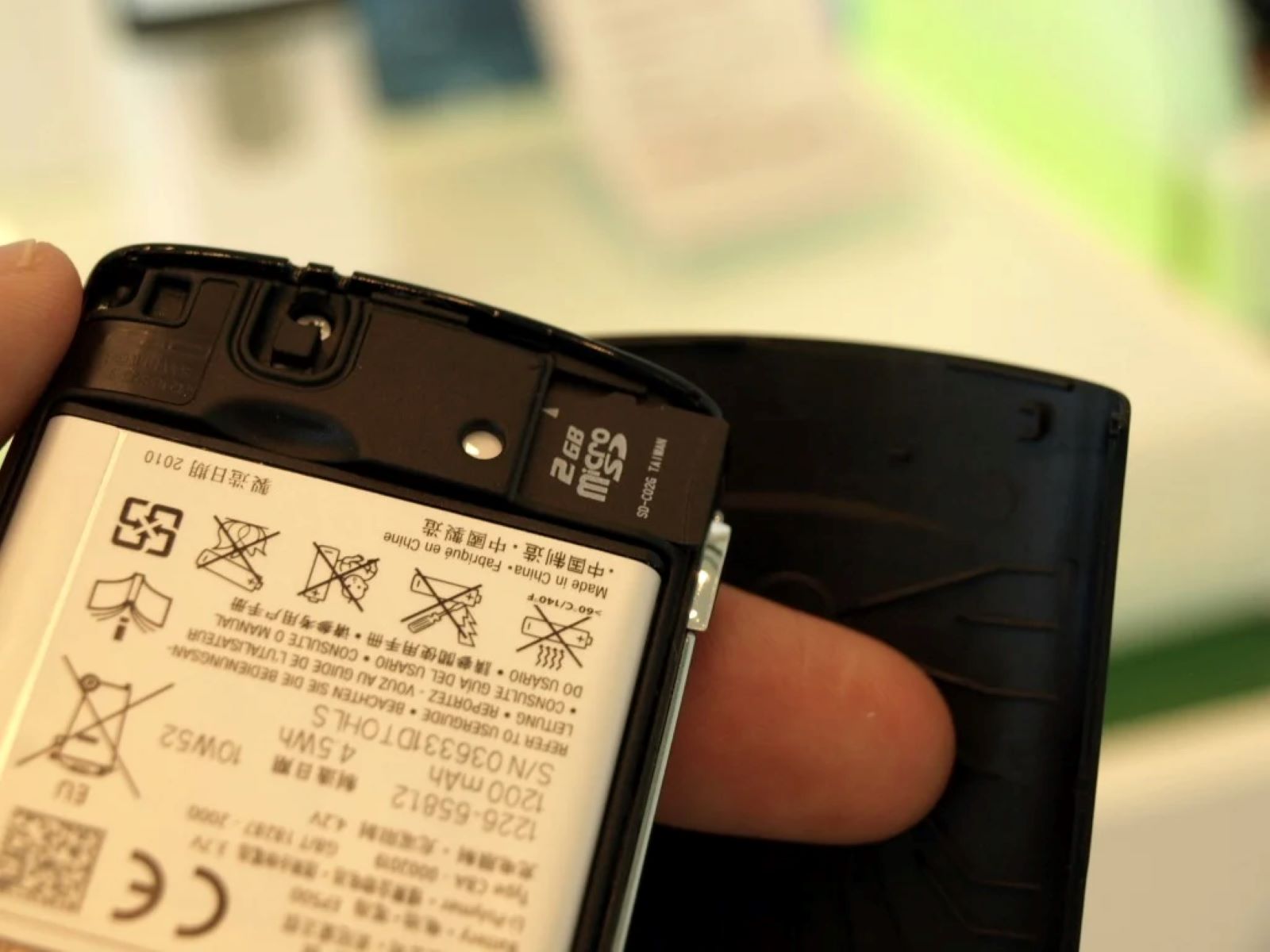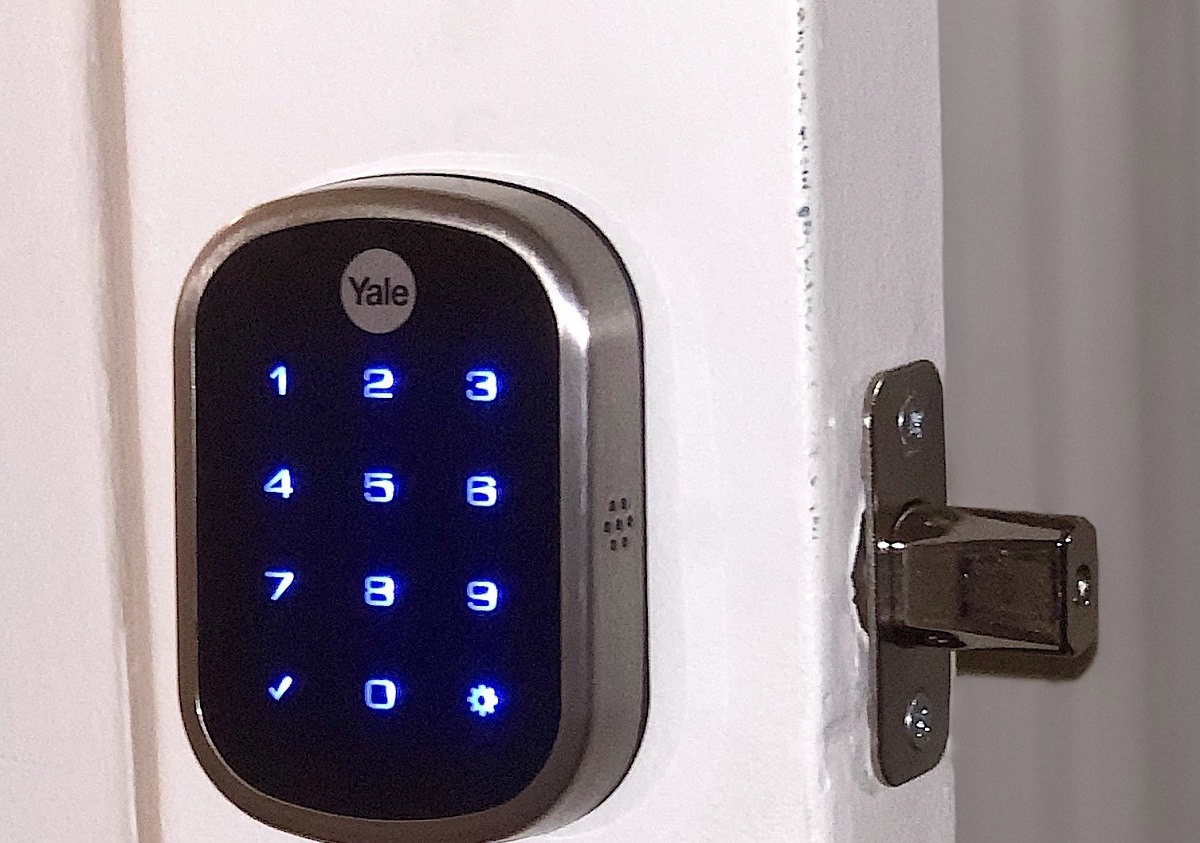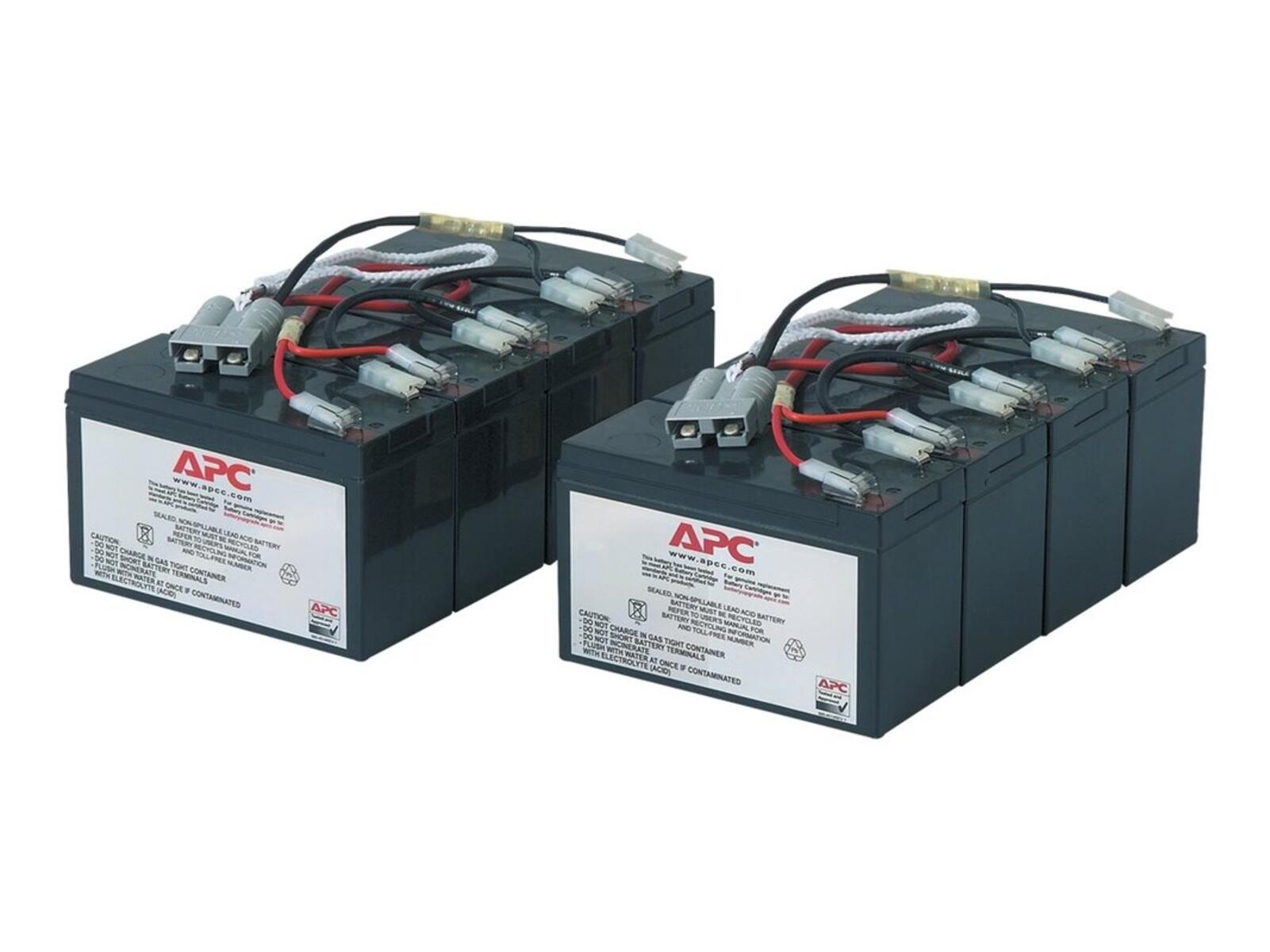Introduction
Welcome to this guide on how to dispose of a UPS battery. If you own a UPS (Uninterruptible Power Supply) system, you may wonder what to do with the battery once it reaches the end of its life. Proper disposal of UPS batteries is crucial to protect the environment and prevent any potential harm to human health.
UPS batteries, also known as backup batteries or standby batteries, are an essential component of UPS systems. They provide backup power during electrical outages, ensuring that critical devices and systems continue to operate. However, like any other battery, UPS batteries have a limited lifespan and will eventually need to be replaced.
Improper disposal of UPS batteries can have adverse effects on the environment. These batteries often contain hazardous materials, such as lead, sulfuric acid, and other toxic chemicals. If not handled and disposed of correctly, these substances can contaminate soil, water, and air, posing significant risks to both humans and the ecosystem.
In this guide, we will explore the different options for responsibly disposing of UPS batteries. We will discuss recycling centers, battery manufacturers, retailers and electronics stores, as well as local hazardous waste collection facilities. We will also provide step-by-step instructions on how to prepare your UPS battery for disposal and highlight some important precautions to take during the process.
By following the guidelines in this article, you can ensure that your UPS battery is disposed of properly, minimizing the potential environmental impact and ensuring the safety of yourself and others.
What is a UPS Battery?
A UPS battery, or Uninterruptible Power Supply battery, is a type of rechargeable battery specifically designed to provide backup power when the main power source fails. It is an essential component of a UPS system, which is commonly used to protect sensitive electronics and critical systems from power interruptions or fluctuations.
The primary purpose of a UPS battery is to ensure uninterrupted power supply to connected devices during power outages or when the main power source experiences voltage drops or surges. When the main power supply is disrupted, the UPS system switches to battery power almost immediately, allowing the connected devices to continue operating without any interruption.
UPS batteries are available in various sizes and capacities, depending on the specific requirements of the devices they are intended to protect. They can range from small batteries used to power a single computer or household appliances to large industrial batteries that support data centers or critical infrastructure.
Typically, UPS batteries are sealed lead-acid (SLA) batteries. These batteries consist of lead plates submerged in sulfuric acid electrolyte, contained within a sealed casing. The lead plates serve as the positive and negative terminals, while the sulfuric acid electrolyte facilitates the chemical reactions to generate electricity.
Some UPS systems may utilize other types of batteries, such as lithium-ion or nickel-cadmium batteries, which offer advantages like higher energy density and longer lifespan. However, sealed lead-acid batteries remain the most commonly used UPS battery due to their cost-effectiveness and reliability.
It is worth noting that UPS batteries have a limited lifespan. The exact lifespan can vary depending on factors such as battery quality, usage patterns, and environmental conditions. Over time, the battery’s capacity to hold a charge decreases, and it will eventually need to be replaced to maintain the UPS system’s reliability.
Proper maintenance and regular battery testing are essential to ensure the UPS system’s functionality and maximize the battery’s lifespan. When the battery reaches the end of its useful life, it must be disposed of responsibly to prevent environmental contamination and adhere to local regulations.
Why is Proper Disposal Important?
Proper disposal of UPS batteries is of utmost importance due to various environmental and health concerns associated with these batteries. Here are some key reasons why proper disposal is crucial:
1. Environmental Protection: UPS batteries contain hazardous materials such as lead, sulfuric acid, and other toxic chemicals. When not disposed of properly, these substances can leach into the soil and contaminate groundwater and surrounding ecosystems. This contamination can have long-lasting negative effects on plant and animal life and disrupt the delicate balance of natural habitats.
2. Human Health and Safety: Improper disposal of UPS batteries poses significant risks to human health. The toxic substances present in these batteries can enter the environment through landfills or improper handling, leading to air pollution and the potential for respiratory issues. Additionally, contact with the battery’s chemicals can cause skin irritation, burns, or other health problems if not handled with care.
3. Compliance with Regulations: Many countries and regions have specific regulations in place for the proper disposal of batteries, including UPS batteries. These regulations aim to ensure environmentally responsible waste management and prevent the release of hazardous materials into the environment. By following proper disposal practices, you can comply with these regulations and avoid potential legal consequences.
4. Recycling and Resource Conservation: UPS batteries contain valuable materials, such as lead, that can be recycled and reused. Proper disposal ensures that these materials are recovered and incorporated into new battery production or other applications. Recycling batteries helps conserve natural resources, reduce the demand for raw materials, and minimize the environmental impact of battery production.
5. Setting a Responsible Example: Properly disposing of UPS batteries sets an example of responsible waste management. By taking the extra step to ensure the safe disposal of these batteries, you demonstrate your commitment to environmental stewardship. This act can inspire others to follow suit and contribute to a more sustainable future.
Considering these reasons, it is essential to be aware of the proper disposal methods available and take the necessary steps to ensure that UPS batteries are handled and disposed of responsibly. The next section will explore the different options for disposing of UPS batteries in an environmentally friendly manner.
Options for Disposing of a UPS Battery
When it comes to disposing of a UPS battery, there are several responsible options to consider. These options ensure that the battery is handled in an environmentally friendly manner and compliant with local regulations. Here are some common options for UPS battery disposal:
1. Recycling Centers: Many recycling centers accept batteries for proper disposal. These centers have specialized processes to safely handle and recycle the various components of the UPS battery. Recycling centers extract valuable materials such as lead, plastic, and electrolytes, which can be reused in the manufacturing of new batteries or other products.
2. Battery Manufacturers: Some battery manufacturers offer take-back programs for their products, including UPS batteries. They accept their own brand of batteries for recycling or proper disposal. Check the manufacturer’s website or contact their customer service to inquire about their battery recycling program.
3. Retailers and Electronics Stores: Many retailers and electronics stores have drop-off locations where you can safely dispose of used batteries, including UPS batteries. These stores often have partnerships with recycling centers or battery manufacturers, ensuring that the batteries are disposed of properly.
4. Local Hazardous Waste Collection Facilities: Local hazardous waste collection facilities or household recycling centers may also accept UPS batteries. These facilities are equipped to handle various types of hazardous waste and ensure proper disposal methods are followed. Check with your local municipality or waste management department for information on nearest collection centers.
5. Manufacturer Mail-In Programs: Some UPS battery manufacturers provide mail-in programs where you can send your used battery back to the manufacturer for proper disposal. This option is convenient if there are no nearby drop-off locations or collection facilities readily available.
Remember, before choosing any of these options, it is essential to remove the UPS battery from the UPS system and store it in a safe and dry place. If the battery is damaged or leaking, take extra precautions to handle it safely and consider seeking professional assistance.
By utilizing one of these disposal options, you can ensure that your UPS battery is handled responsibly and its components are recycled or disposed of properly. It is crucial to take the initiative to dispose of batteries correctly and contribute to a cleaner and safer environment.
Recycling Centers
Recycling centers play a crucial role in the proper disposal of UPS batteries and other types of batteries. These facilities are equipped with the necessary infrastructure and processes to safely handle and recycle batteries, ensuring that their components are reused and hazardous materials are appropriately managed.
When considering recycling centers for UPS battery disposal, here are some key points to keep in mind:
1. Battery Sorting and Segregation: Recycling centers have specific procedures in place to sort and segregate different types of batteries. This is important because different batteries have varying chemical compositions and require specialized recycling processes. UPS batteries are typically classified as sealed lead-acid (SLA) batteries, and recycling centers have the expertise to handle and recycle these types of batteries.
2. Battery Decontamination: Before recycling, batteries at recycling centers undergo a decontamination process to remove any remaining residual charges and hazardous materials. This step ensures the safety of the recycling process and protects workers and the environment from potential chemical leaks or reactions.
3. Component Recovery: Recycling centers have sophisticated machinery and processes to recover valuable components found in UPS batteries. These components include lead plates, plastic casings, and electrolytes. Lead is a particularly valuable material that can be reused in the production of new batteries or other applications, minimizing the need for extracting and refining virgin lead.
4. Environmental Compliance: Recycling centers must comply with local environmental regulations regarding hazardous waste management. They follow strict guidelines to ensure that the recycling process is environmentally responsible and that any potential pollutants or contaminants are properly contained and treated. By using certified recycling centers, you can have peace of mind knowing that your UPS battery is disposed of in an environmentally safe manner.
5. Convenience: Recycling centers are often conveniently located and easily accessible. They may have designated drop-off locations where you can bring your UPS battery for recycling. Some recycling centers may also offer pick-up services, particularly for larger quantities of batteries or bulk recycling from businesses or organizations.
It is important to note that not all recycling centers accept UPS batteries. Therefore, it is advisable to contact your local recycling center before visiting to ensure that they can handle UPS batteries and inquire about any specific requirements or procedures they may have.
By choosing recycling centers for UPS battery disposal, you are actively contributing to a more sustainable and eco-friendly future. Recycling centers ensure that valuable resources are recovered from batteries while minimizing the negative impact on the environment through safe disposal practices.
Battery Manufacturers
Battery manufacturers can be a valuable resource for the proper disposal of UPS batteries. Many manufacturers offer take-back programs or recycling initiatives to ensure that their batteries are disposed of responsibly and in accordance with local regulations. Here’s what you need to know about utilizing battery manufacturers for UPS battery disposal:
1. Manufacturer-Specific Programs: Battery manufacturers may have dedicated programs in place for the return and recycling of their own brand of batteries, including UPS batteries. These programs often accept used batteries from customers, regardless of whether the batteries are still functioning or not. By participating in these programs, you can help ensure that the battery is disposed of properly and recycled in an environmentally friendly manner.
2. Manufacturer’s Website: Manufacturers usually provide information about their battery recycling programs on their official websites. You can visit their website and search for details about their take-back initiatives, recycling instructions, or any specific requirements they have for battery disposal. Be sure to look for the section that provides details for consumers or customers regarding battery recycling.
3. Customer Service Contact: If you cannot find the information you need on the manufacturer’s website, you can reach out to their customer service department for assistance. Contact their customer support through email or phone and inquire about their battery recycling program. They should be able to provide you with the necessary information on returning or recycling your UPS battery.
4. Return or Mail-In Programs: Some manufacturers may have return or mail-in programs where you can send back your UPS battery for proper disposal. These programs often provide shipping instructions and labels for convenience. Make sure to follow the manufacturer’s instructions for packaging and shipping the battery to ensure safe transportation and disposal.
5. Environmental Responsibility: Many battery manufacturers prioritize environmental responsibility and sustainability. By utilizing their take-back or recycling programs, you are supporting their commitment to responsible waste management. This collaborative effort helps reduce the environmental impact of batteries and promotes the recycling of valuable battery components.
It is important to note that not all battery manufacturers have their own recycling programs. If your battery manufacturer does not offer take-back services, consider exploring other options such as recycling centers or local hazardous waste collection facilities.
By participating in battery manufacturers’ recycling initiatives, you can ensure that your UPS battery is disposed of properly while supporting manufacturers’ efforts to reduce waste and promote sustainability. Reach out to the battery manufacturer or check their website for more information on how to return or recycle your UPS battery using their specific program.
Retailers and Electronics Stores
Retailers and electronics stores often provide convenient options for the proper disposal of UPS batteries. These establishments typically have drop-off locations or partnerships with recycling centers or battery manufacturers to ensure responsible battery disposal. Here’s what you need to know about utilizing retailers and electronics stores for UPS battery disposal:
1. Drop-Off Locations: Many retailers and electronics stores have designated drop-off locations where you can safely and conveniently dispose of used batteries, including UPS batteries. These drop-off points are typically found near store entrances or customer service areas. Look for collection bins or containers specifically labeled for battery recycling.
2. Acceptance of Various Battery Types: Retailers and electronics stores often accept a wide variety of batteries for recycling, including UPS batteries. They understand the importance of proper disposal and are equipped to handle different battery chemistries. By utilizing their services, you can ensure that your UPS battery is treated and recycled alongside other battery types.
3. Partnerships with Recycling Centers and Manufacturers: Many retailers and electronics stores partner with recycling centers or battery manufacturers to facilitate proper battery disposal. They collect used batteries and ensure that they are transported to the appropriate recycling facilities. Some may have explicit partnerships with specific recycling programs, ensuring that the batteries are processed according to strict environmental standards.
4. Larger Retail Chains: In some cases, larger retail chains may have nationwide or regional recycling programs that extend beyond individual store locations. These programs ensure a consistent approach to battery recycling, allowing customers to safely dispose of batteries at any participating location. Check the retailer’s website or contact their customer service to inquire about their battery recycling initiatives.
5. Awareness Campaigns: Retailers and electronics stores may run awareness campaigns or educational initiatives to promote responsible battery disposal. These campaigns aim to raise awareness among customers and encourage them to recycle their used batteries. They may provide informational materials, such as brochures or signage, to educate customers about the environmental impacts of improper battery disposal.
When utilizing retailers and electronics stores for UPS battery disposal, it is important to note any specific guidelines or restrictions they may have. Some stores may require battery terminals to be taped or separated to prevent accidental short circuits. It is always advisable to check with store staff or consult the store’s website for any instructions or guidelines before dropping off your UPS battery.
By utilizing the convenient drop-off options provided by retailers and electronics stores, you can ensure that your UPS battery is properly recycled and does not end up in landfills or pose harm to the environment. Remember to only use designated drop-off locations and adhere to any specific instructions provided to facilitate a successful and responsible battery disposal process.
Local Hazardous Waste Collection Facilities
Local hazardous waste collection facilities are dedicated centers designed to handle and dispose of various types of hazardous waste, including UPS batteries. These facilities ensure that hazardous materials are properly managed and disposed of to prevent any harm to the environment or human health. Here’s what you need to know about utilizing these facilities for UPS battery disposal:
1. Specialized Handling: Local hazardous waste collection facilities are equipped with the necessary infrastructure, equipment, and trained personnel to handle hazardous materials safely. UPS batteries, which often contain toxic substances such as lead and sulfuric acid, require special handling and disposal processes. These facilities follow strict guidelines and protocols to ensure that batteries are managed with the necessary precautions.
2. Environmental Compliance: Local hazardous waste collection facilities adhere to local, state, and federal regulations regarding hazardous waste management. They operate within strict frameworks to ensure that hazardous materials, including UPS batteries, are disposed of in an environmentally responsible manner. By using these facilities, you can be confident that your UPS battery is properly managed and does not contribute to environmental pollution.
3. Safe Disposal Processes: Local hazardous waste collection facilities employ proper disposal methods for UPS batteries. These methods may include battery sorting, segregating based on battery type, and sending the batteries to licensed recycling centers or specialized facilities equipped to handle battery recycling. By utilizing these facilities, you contribute to the circular economy by ensuring that valuable battery components are recycled and hazardous materials are contained and treated appropriately.
4. Accessibility: Local hazardous waste collection facilities are typically accessible to the public, making it easier for individuals and businesses to dispose of UPS batteries properly. These facilities may have specific drop-off days or designated hours of operation. You can typically find information about the location, hours, and accepted materials on your local municipality’s website or by contacting the local waste management department.
5. Additional Hazardous Waste Disposal: In addition to UPS batteries, local hazardous waste collection facilities accept a wide range of other hazardous materials, such as household chemicals, pesticides, paints, and solvents. This makes it convenient to dispose of multiple types of hazardous waste at one central location, ensuring you handle all hazardous materials responsibly.
It is important to note that some local hazardous waste collection facilities may have specific requirements or restrictions for battery disposal. For example, they may mandate that batteries be stored in leak-proof containers or require pre-registration before dropping off batteries. It is crucial to contact your local facility or check their guidelines to ensure compliance with their procedures.
By utilizing local hazardous waste collection facilities for UPS battery disposal, you can be confident that your battery is handled and disposed of in a manner that complies with regulations and prevents environmental contamination. Take advantage of these facilities’ expertise and resources to contribute to a cleaner and safer community.
Steps to Prepare Your UPS Battery for Disposal
Before disposing of your UPS battery, it is important to take certain precautions and follow proper procedures to ensure safe handling. Here are the steps to prepare your UPS battery for disposal:
1. Disconnect the UPS System: Ensure that the UPS system is disconnected from the power source before attempting to remove the battery. This step helps prevent any accidental electrical shocks while handling the battery.
2. Wear Protective Gear: Put on protective gear such as gloves and safety glasses to protect yourself from any potential exposure to battery chemicals or corrosive substances.
3. Check for Leaks or Damage: Inspect the UPS battery for any leaks, cracks, or other signs of damage. If you notice any leaks or signs of corrosion, take extra precautions to handle the battery safely. Consider seeking professional assistance if the battery is severely damaged.
4. Remove the Battery: Carefully remove the UPS battery from the UPS system. Follow any specific instructions provided by the UPS manufacturer for battery removal. Take note of the battery’s weight and ensure that you are capable of safely lifting and carrying it.
5. Store the Battery Properly: Store the UPS battery in a cool, dry place away from flammable materials and direct sunlight. Keep it in a location where it will not be at risk of tipping or falling over. If there are multiple batteries, ensure they are stored in a way that prevents contact between their terminals to avoid short circuits.
6. Tape the Battery Terminals: Use electrical tape to cover the battery terminals (both positive and negative) to prevent accidental short circuits during transportation or storage. This step ensures the safe handling of the battery and minimizes the risk of electrical discharge.
7. Research Local Disposal Options: Research and identify the appropriate disposal options available in your area. These options may include recycling centers, battery manufacturers, retailers, electronics stores, or local hazardous waste collection facilities. Understand their specific requirements and procedures for battery disposal.
8. Follow Disposal Guidelines: Adhere to the specific guidelines provided by your chosen disposal option. Some facilities may have specific packaging or labeling requirements. Follow these guidelines to ensure that the battery is accepted and disposed of properly.
9. Deliver the Battery for Disposal: Once the battery is properly prepared, deliver it to the designated disposal location. Contact the facility beforehand to confirm their hours of operation and any specific drop-off instructions they may have.
By following these steps, you can ensure the safe and responsible disposal of your UPS battery. Taking the time to prepare the battery properly protects both the environment and individuals involved in the disposal process.
Precautions to Take
When disposing of a UPS battery, it is crucial to take certain precautions to ensure personal safety and environmental protection. Here are important precautions to keep in mind:
1. Personal Protective Equipment (PPE): Wear appropriate personal protective equipment, such as gloves and safety glasses, to protect your hands and eyes from potential exposure to battery chemicals or corrosive substances. This will help minimize the risk of skin irritation, burns, or other health hazards.
2. Ventilation: Work in a well-ventilated area or outdoor space when handling the UPS battery. This helps to minimize the buildup of potentially harmful fumes or gases released by the battery’s chemicals.
3. Avoid Physical Damage: Handle the UPS battery with care and avoid dropping or subjecting it to any physical damage. Damaged batteries may leak hazardous materials or cause short circuits, posing risks to individuals and the environment.
4. Safe Lifting Techniques: Be mindful of the weight of the UPS battery and use proper lifting techniques when moving or transporting it. Avoid straining or overexerting yourself to prevent injuries.
5. Separation of Terminals: Ensure that the battery terminals are securely covered with electrical tape to prevent accidental short circuits during storage, transportation, or disposal. This reduces the risk of electrical shock or fire hazards.
6. Keep Away from Flammable Materials: Store the UPS battery away from flammable materials and sources of ignition. This helps reduce the risk of fire and ensures the safe storage of the battery until it is properly disposed of.
7. Follow Disposal Guidelines: Adhere to the specific guidelines provided by your chosen disposal option, whether it is a recycling center, battery manufacturer, retailer, or local hazardous waste collection facility. Follow their instructions for packaging, labeling, and transporting the battery to ensure compliance and safe disposal.
8. Do Not Incinerate: Never incinerate UPS batteries. Burning batteries not only releases toxic fumes but also poses fire hazards due to their flammable components. Proper disposal methods, such as recycling, prevent environmental pollution and potential risks.
9. Educate Others: Share your knowledge about proper UPS battery disposal and precautions with others. Encourage friends, family, and colleagues to dispose of their batteries responsibly, contributing to a cleaner and safer environment for everyone.
By taking these precautions, you can ensure the safe handling and disposal of UPS batteries. Remember, the responsible disposal of batteries is not only essential for personal safety but also crucial for protecting the environment from hazardous chemicals and minimizing the impact on our ecosystems.
Conclusion
Proper disposal of UPS batteries is vital to protect the environment, human health, and promote sustainability. These batteries contain hazardous materials that, if not handled and disposed of correctly, can harm the ecosystem and pose risks to individuals. By following the appropriate steps, individuals can ensure their UPS batteries are disposed of responsibly.
Recycling centers provide specialized processes for handling UPS batteries and properly recycling their components. Battery manufacturers often have take-back programs, providing a convenient option for disposing of their own brand of batteries. Retailers and electronics stores offer drop-off points, ensuring convenient disposal options for UPS batteries. Local hazardous waste collection facilities specialize in the proper handling and disposal of hazardous materials, including UPS batteries.
To prepare a UPS battery for disposal, it is crucial to disconnect it from the UPS system, wear protective gear, and check for leaks or damage. The battery should be stored in a cool, dry place, with terminals taped to prevent short circuits. UPS battery owners should research local disposal options and follow specific guidelines provided by the selected facility.
Throughout the process, it is important to take precautions such as wearing personal protective equipment, maintaining proper ventilation, and avoiding physical damage to the battery. Following disposal guidelines, not incinerating batteries, and educating others about responsible battery disposal are crucial steps in ensuring a cleaner and safer environment for all.
By responsibly disposing of UPS batteries, individuals contribute to environmental protection, conserve natural resources, comply with regulations, and promote sustainability. Taking these steps ensures that UPS batteries are recycled or handled properly, minimizing harmful impacts on ecosystems and human health. Let’s do our part to protect the environment and dispose of UPS batteries responsibly.

























